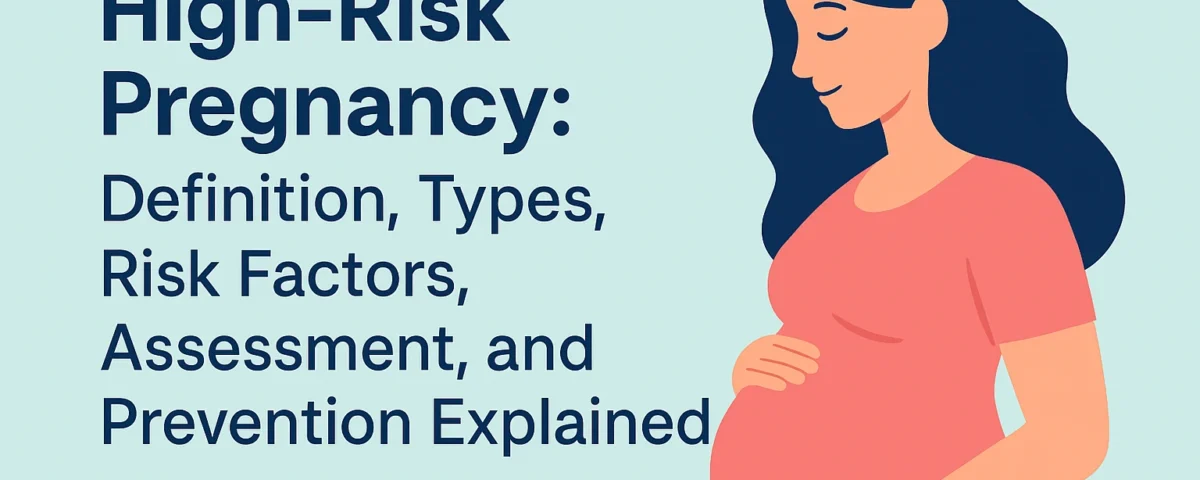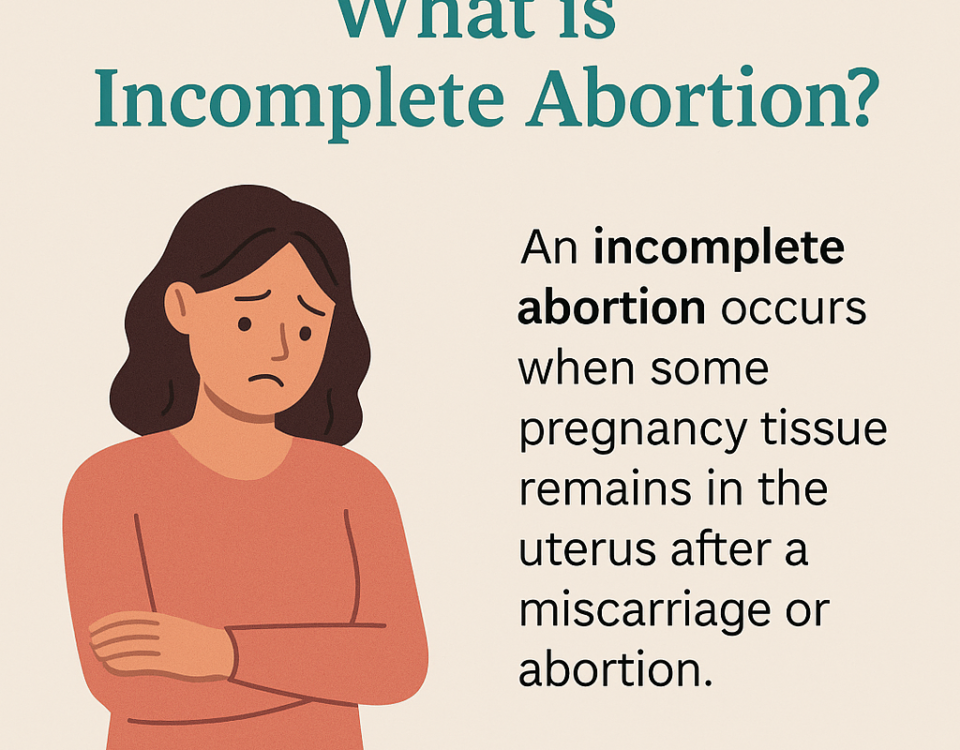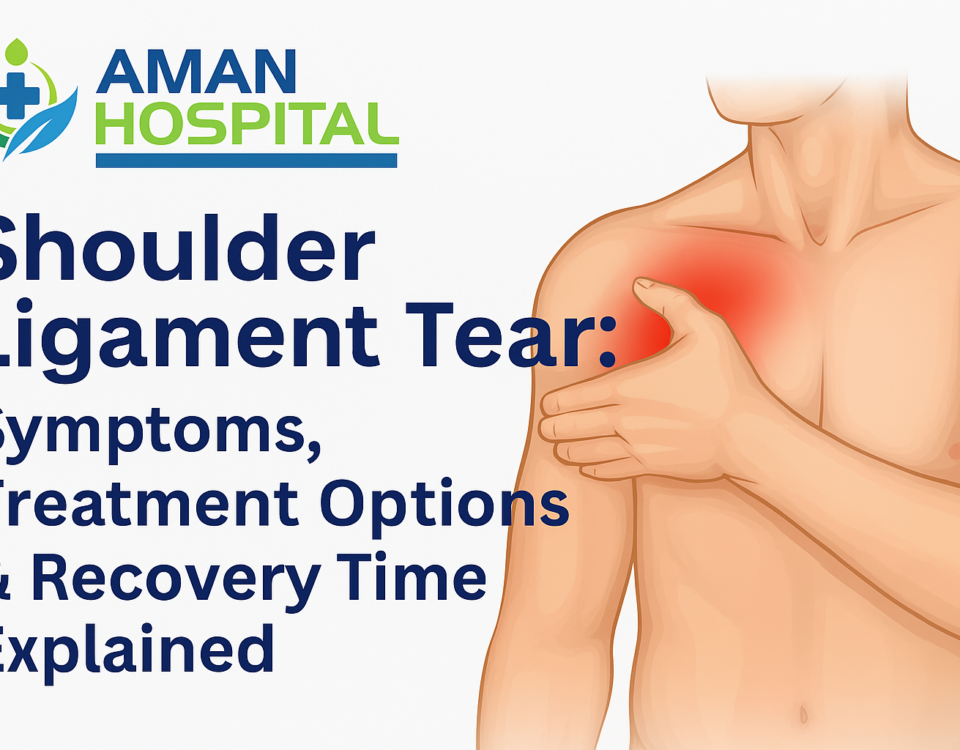- Gurgaon Pataudi Road, Near Laxmi Furniture, Sector - 89, Gurugram - 122004 INDIA
- +91- 8826447707
- 0124500099
- amanhospital1829@gmail.com
High-Risk Pregnancy: Definition, Types, Risk Factors, Assessment, and Prevention Explained

Shoulder Ligament Tear: Symptoms, Treatment Options & Recovery Time Explained
June 18, 2025
Incomplete Abortion: Definition, Causes, Signs, Diagnosis, and Management
July 9, 2025A Gentle Start: Why Talking About High-Risk Pregnancy Matters
If you’ve just heard the words “high-risk pregnancy,” take a deep breath—you’re not alone, and it’s okay to feel a bit overwhelmed. Being labeled high-risk doesn’t mean something will go wrong; it simply means your doctors want to give you and your baby a little more attention and care. In fact, this extra monitoring often leads to healthier outcomes. In this blog, we’ll gently guide you through what high-risk pregnancy means, common causes, how it’s managed, and the support systems available to help. Think of this as a caring conversation, not a warning—because with the right information and care, many high-risk pregnancies lead to beautiful, healthy births.
🧠 Breaking It Down: What Exactly Is a High-Risk Pregnancy?
Being told you have a high-risk pregnancy might sound intimidating, but it’s more common than you think—and it simply means that you and your baby will receive extra care and attention.
📌 What Does “High-Risk Pregnancy” Really Mean?
The high risk pregnancy definition refers to any pregnancy where there is a higher chance of complications—for the mother, the baby, or both. This doesn’t mean something will go wrong; it just signals doctors to keep a closer eye on things.
🤰 Why Is It Considered High-Risk?
You may be placed in the high-risk category due to factors like:
- Age (under 17 or over 35)
- Pre-existing conditions like diabetes or hypertension
- Complications in a previous pregnancy
- Carrying multiples (twins or more)
- Pregnancy-related issues such as placenta previa or preeclampsia
💡 Think of It as a VIP Pass
A high-risk pregnancy is like having a VIP ticket to more:
- Frequent prenatal visits
- Specialized tests and ultrasounds
- One-on-one attention from specialists
This ensures that any issues are spotted early and managed proactively.
🩺 Where to Seek the Right Care?
Getting the right support makes a world of difference. The best gynecologist in Gurgaon at Aman Hospital offers advanced monitoring, expert advice, and compassionate care for high-risk pregnancies—so you can focus on what matters most: a healthy, happy outcome.
🌈 Types of High-Risk Pregnancy You Should Know About
Not all high-risk pregnancies are the same. Here are common types of high risk pregnancy, each manageable with the right care and attention:
👩🦳 Pregnancy After Age 35
Often called “advanced maternal age,” this type involves a slightly higher risk of complications—but with regular checkups and a healthy lifestyle, most women in this group have smooth, successful pregnancies.
👶 Multiple Babies (Twins, Triplets & More)
Carrying more than one baby means your body is working extra hard. More frequent ultrasounds and monitoring help ensure each baby grows safely and steadily.
❤️ Pre-existing Health Conditions
Conditions like diabetes, high blood pressure, or thyroid disorders can affect pregnancy. Early planning and coordinated care—sometimes including specialists from the Best Physiotherapy Hospitals in Gurgaon—can help manage your health every step of the way.
💔 History of Pregnancy Loss or Complications
If you’ve had miscarriages, stillbirths, or complications in past pregnancies, your current one may be closely monitored to reduce risks and offer peace of mind.
⚠️ Red Flags: What Puts a Pregnancy at Risk?
Understanding the high risk pregnancy factors can help you take proactive steps toward a healthy outcome. Here are real-life questions many moms-to-be ask—along with reassuring answers:
“I’m overweight—does that make my pregnancy high-risk?”
Yes, being significantly overweight or underweight can increase the risk of complications like gestational diabetes or preeclampsia. But with nutritional guidance and regular checkups, risks can be managed effectively.
“I had gestational diabetes last time—will it happen again?”
You may be at a higher risk, but early screening and lifestyle modifications often help prevent or manage it successfully during your current pregnancy.
“My mom had preeclampsia—should I be worried?”
A family history of certain complications can increase your risk. That’s why doctors include genetics in the high risk pregnancy list when evaluating your care plan.
“Does where I live or work affect my pregnancy?”
Yes—environmental exposures (like pollution or toxic substances) and high-stress jobs can contribute to pregnancy risks. These are important, often overlooked high risk pregnancy factors.
By recognizing these risk factors early, your care team can personalize a safer, healthier pregnancy journey for you.
🔍 How Is High-Risk Pregnancy Identified?
A Mom’s Journey Through Checkups
Meet Ananya. At 10 weeks pregnant, she was told her age and thyroid condition placed her in the “high-risk” category. Unsure what that meant, she soon began her personalized journey through the assessment of high risk pregnancy—and found it more reassuring than scary.
Week 12 – Bloodwork Begins
Routine blood tests were done to check Ananya’s sugar levels, thyroid function, and infection markers. These early tests help spot issues before they grow serious.
Week 16 – First Detailed Ultrasound
A high-resolution scan gave a clear view of the baby’s development, ensuring all organs were forming as expected. This was her first big sigh of relief.
Week 20 – Genetic Screening
Ananya opted for a non-invasive prenatal test (NIPT) to screen for chromosomal conditions. With expert guidance, she felt confident about her choices.
Week 28 – Biophysical Profile (BPP)
Later in pregnancy, she underwent a BPP—a combo of ultrasound and heart rate monitoring—to assess the baby’s oxygen, movements, and overall health.
🛡️ Prevention Is Power: What You Can Do Before and During Pregnancy
When it comes to the prevention of high risk pregnancy, small steps can lead to big peace of mind. Here’s how you can prepare—before and after the positive test.
✅ Before Pregnancy
Laying a healthy foundation starts early.
- Eat a Balanced Diet: Ensure your meals are rich in iron, folic acid, and vitamins.
- Take Prenatal Supplements: Folic acid and multivitamins reduce birth defect risks.
- Manage Chronic Illnesses: Get conditions like diabetes or thyroid under control.
- Quit Smoking & Alcohol: These increase the chances of complications significantly.
- Consult a Doctor: Preconception counseling is key in understanding how to prevent high risk pregnancy.
🩺 During Pregnancy
Stay proactive as your baby grows.
- Attend Early & Regular Prenatal Visits
Early detection allows early action. - Monitor Weight Gain & Diet
Follow your OB’s advice on healthy weight gain. - Stay Active
Light exercises like walking or prenatal yoga keep circulation and mood in check. - Manage Stress
Emotional well-being matters—don’t hesitate to seek mental health support.
💬 Doctor’s Tip: What Not to Ignore!
Unusual swelling, severe headaches, or reduced baby movement?
These may signal a complication. Don’t wait—talk to your doctor right away.
👩⚕️ Meet Your Support System: Who Will Help You Through It?
High-risk doesn’t mean you’re on your own—in fact, it means you’ll have more hands holding yours. Your care team will likely include:
- OB/GYN – Your primary guide through pregnancy and delivery
- Maternal-Fetal Medicine (MFM) Specialist – Offers expert care for complex cases
- Dietician – Ensures your nutrition supports both mom and baby
- Mental Health Professional – Helps manage stress, fear, or anxiety
Together, they form a circle of care to walk you through each step. With regular updates, supportive conversations, and focused monitoring, you’re never alone on this journey.
💬 Real Stories, Real Strength
Riya, age 38, was nervous when told her pregnancy was high-risk due to fibroids. With close monitoring and expert care, she gave birth to a healthy baby girl.
Nisha, living with diabetes, worked with her MFM and dietician to manage her condition—and welcomed twins at full term.
Pooja, an active teacher with a history of miscarriage, found reassurance through mental health support and daily physiotherapy coordinated with the best orthopedic in Gurgaon.
These women—and many more—show that high-risk doesn’t mean hopeless. With strength, support, and smart care, beautiful beginnings are always possible.
📌 Final Thoughts: High-Risk Doesn’t Mean Hopeless
A high-risk pregnancy can feel overwhelming at first—but remember, it’s not a prediction of problems, just a call for extra care. With the right information, a supportive medical team, and self-care, many women go on to have safe, healthy deliveries. If you have concerns or questions, don’t hesitate to talk to a specialist. Dr. Shweta Hasija, Senior Consultant in Obstetrics & Gynecology at Aman Hospital Gurgaon, is here to guide you with compassion, experience, and personalized care—so you never have to walk this journey alone.




